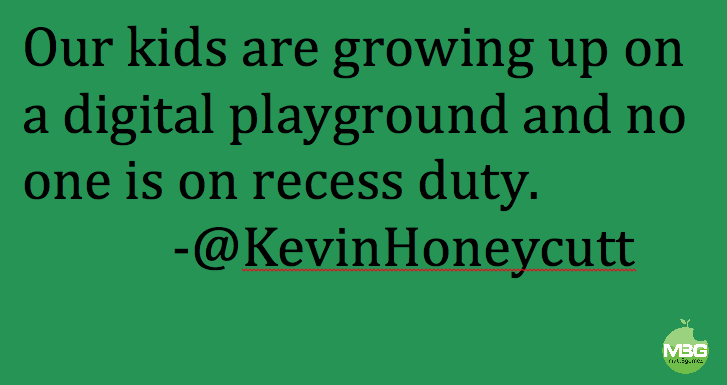 |
| http://mattbgomez.com/we-should-be-doing-more-than-teaching-digital-citizenship/ |
Digital citizenship, in my opinion, should be taught early and often. If I could have it my way, as young as kindergarten when we start teaching the students concepts of “stranger danger”. Let’s be honest, these kids are on the internet whether we want to believe it or not at this young age anyways. The concept of knowing how to act and behave online can be overlooked by many teachers or adults with the simple assumption that the children know how they should behave and act. In my own experience, many times I have also overheard “teacher room talk” with suggestions that perhaps the parents need to look at their child and what they are doing online. The blame can be put on all sorts of people, but that will not solve the matter at hand of how do we teach children the importance of protecting themselves through respecting themselves online? I feel that there is a strong need for children to learn what their digital footprints implies, how it can follow them their whole life, and how to protect it.
 |
| http://www.quickmeme.com/meme/3rgi6e |
As far as my own digital footprint is concerned, I try to stay private about most things and avoid posting images of myself/social life. I do have this blog of course for professional and educational purposes, and I also have a Twitter for the same purposes,l as well as to stay up-to-date on current events and news. However, I steer clear of photo sharing sites such as Facebook and Instagram. Don’t get me wrong, I understand how some people use these social sites to stay in touch with friends and family or for other means, but it’s just not for me. I know that somewhere out there in “internet database world” there are images of me, but nothing that I must say I regret or would pose a threat for me. Now I understand what people could do with these photos could pose a potential threat but that is where an individual must take a stand and be proactive about what it is they want people to know about them via the world wide web and keep a watchful eye.

